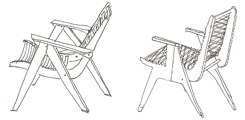There is a strong but neglected tradition of women’s poetry written in response to the events of the First World War. Many of these poems are the products of direct experience of making weapons, nursing the wounded, the loss of brothers, sons, or lovers in the trenches as well as by women involved in the war effort at home. The range of this poetry is wide. It is often experimental and in advance of the male poetic response. Some of the women poets are well known in other contexts — like Rose Macauley, Edith Nesbit, and Edith Sitwell — others are largely unknown. Below, for Remembrance Day, is The Wind on the Downs by Marian Allen (pictured above). The poem was written in 1918.
I like to think of you as brown and tall,
As strong and living as you used to be,
In khaki tunic, Sam Brown belt and all,
And standing there and laughing down at me.
Because they tell me, dear, that you are dead,
Because I can no longer see your face,
You have not died, it is not true, instead
You seek adventure in some other place.
That you are round about me, I believe;
I hear you laughing as you used to do,
Yet loving all the things I think of you;
And knowing you are happy, should I grieve?
You follow and are watchful where I go;
How should you leave me, having loved me so?
We walked along the tow-path, you and I,
Beside the sluggish-moving, still canal;
It seemed impossible that you should die;
I think of you the same and always shall.
We thought of many things and spoke of few,
And life lay all uncertainly before,
And now I walk alone and think of you,
And wonder what new kingdoms you explore.
Over the railway line, across the grass,
While up above the golden wings are spread,
Flying, ever flying overhead,
Here still I see your khaki figure pass,
And when I leave the meadow, almost wait
That you should open first the wooden gate.



No comments!
There are no comments yet, but you can be first to comment this article.